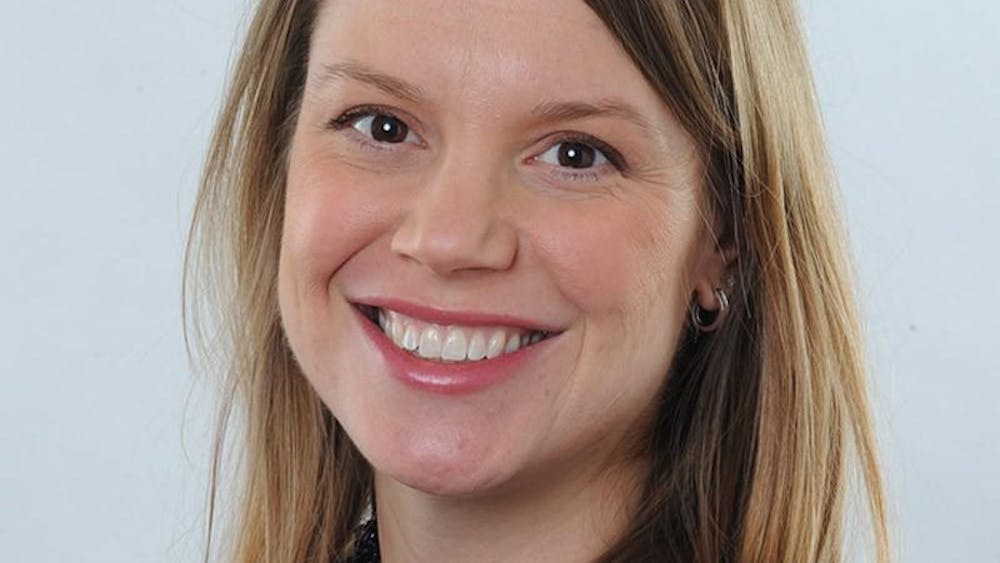EMU’s VISION Volunteer Center hosted its first “Community Conversations” Wednesday. This is the first in a series of events it is planning.
This Community Conversation focused on Food Justice, with four guest panelists eager to discuss this pressing topic and two VISION coordinators, Kayleigh Crummey and Becca Timmermans.
The panelists represented a variety of areas that deal with Food Justice on a daily basis. Stephanie Salsberry, an EMU graduate student, is currently running EMU’s Giving Garden, located behind the softball fields near the Convocation Center. Julie Harkema, a professor in the social work department, is the lead faculty member involved in Swoop’s Food Pantry. Jill Dieterle, professor in the philosophy department, is currently focusing her research on food justice and food ethics on a global scale. Tanya Andrews is the development and marketing person for the local non-profit organization Growing Hope.
The discussion started off with Crummey asking the audience and the panelists, “How do you define Food Justice?”
Food Justice encompasses a number of things from food access to having food security. Food accessibility has become a pressing issue in many communities globally. Often people struggle either with having physical access to food, social access to food or economic access to food. In the Ypsilanti community food accessibility and food security are real problems.
Ypsilanti is in fact a food desert, which is defined by the American Nutrition Association as, “parts of the country vapid of fresh fruit, vegetables and other healthy whole foods, usually found in impoverished areas. This is largely due to a lack of grocery stores, farmer’s markets and healthy food providers.”
As students at EMU the closest grocery locations are not always practical. Transportation was discussed by the panelists as a huge barrier. The bus lines are not set up to provide easy access for EMU students to get to the grocery locations on the outside border of Ypsilanti.
“The ability to eat healthy nutritional food has a huge impact on people’s ability to live their life,” said Samir Webster, an engineering physics major.
To combat the food issues in the community, Growing Hope has established many community programs. Farmer’s markets have been pivotal in the community, they run from May to October and are held twice a week. The Farmer’s Market’s accept food assistance programs such as SNAP and WIC aiming to help eliminate the economic struggle on accessing good healthy food.
Andrews said the market’s focus is, “Empowering the people and educating them on healthy food choices.”
Growing Hope is pivotal in bringing much needed healthy food to the community, as well as supporting the local farmers and local economy. On EMU’s campus a different approach has been taken to help answer the needs of the students.
Swoops Pantry is helping students who are food insecure, meaning they may lack reliable access to a sufficient quantity of affordable nutritious food. The only requirement to use Swoops food pantry is that the individual must be a student and they can use the panty twice a month.
Everything is donated to the pantry and set up like a tiny grocery store with a welcoming atmosphere. Harkema is excited about the future of Swoop saying that they are already beginning to outgrow their current location and meeting a big need.
As Swoop works to meet the immediate needs of students, Salsberry is working with the volunteers of the Giving Garden to educate on growing your own food. Here she is growing fresh healthy pesticide free foods to be donated to Swoop or Food Gatherers. She is excited about the future and the chance to grow larger. She invites anyone interested to come check them out.
Professor Dieterle shared that food sovereignty is becoming important and many people are fighting for local control of their food sources. It is also important for us to not think of food as a commodity. She emphasized the importance of having conversations on food justice and food sovereignty to help change things.
The first “Community Conversations” was considered a success to those involved. Many students were engaged and important information was shared. Although there is a long way to go to obtain appropriate food justice there is a strong movement in Ypsilanti to make things change.
Andrews shared that this hope is obtainable because, “People care about Ypsilanti and invest in the community. They love Ypsi and want to see it thriving.”
Vision will be continuing their “Community Conversations” to get students and individuals engaged in these tough topics that need to be addressed.










